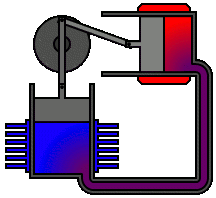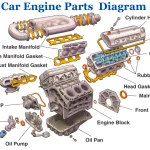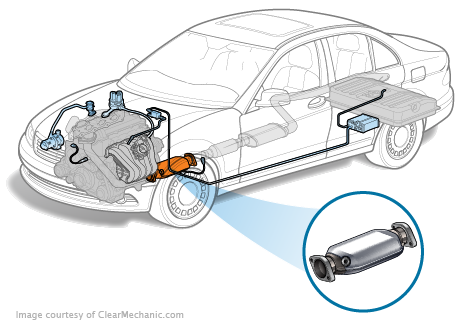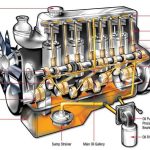The four-stroke internal combustion engine is a type of heat engine used in many everyday vehicles and machines. This type of engine is considered one of the most popular types of engines in the world because of its efficiency and good performance. In this article, we will expand information about the four-stroke internal combustion engine, its components, how it works, and the developments it has witnessed over time.
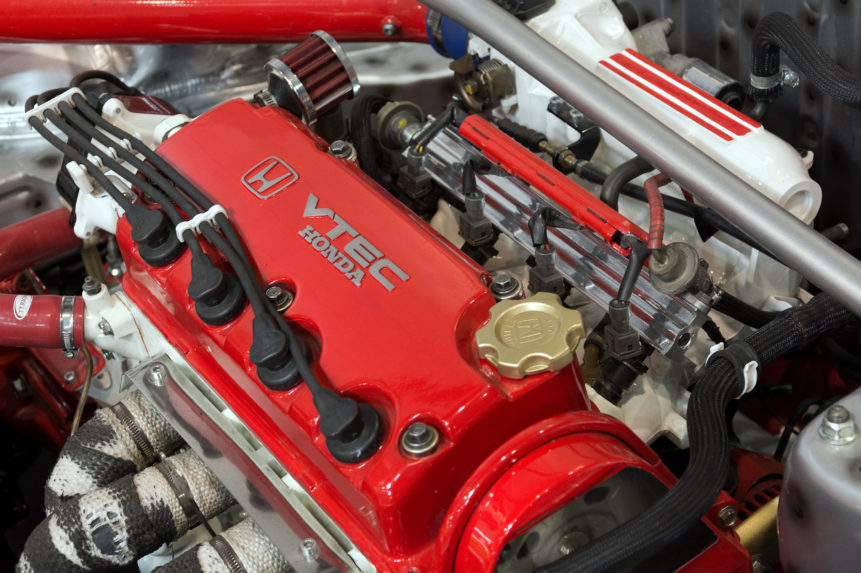
Components of a four-stroke internal combustion engine:
- Cylinder: It is the basic part of the internal combustion engine that contains the piston that moves inside it.
- Piston: It is a piece of metal that moves inside the cylinder and compresses and withdraws air and fuel.
- Valves: They are used to regulate the flow of air and fuel into the cylinder and to allow burning gases to escape.
- Ignition system: It consists of spark plugs that create an electric spark to ignite the air and fuel mixture inside the cylinder.
- Fuel system: It consists of the tank, pump, sprays, floats, filters, fuel lines, and components that enable the delivery and preparation of fuel for combustion.
- Exhaust system: It includes exhaust valves, isolators, and thermal insulators and helps remove gases resulting from combustion from the cylinder.
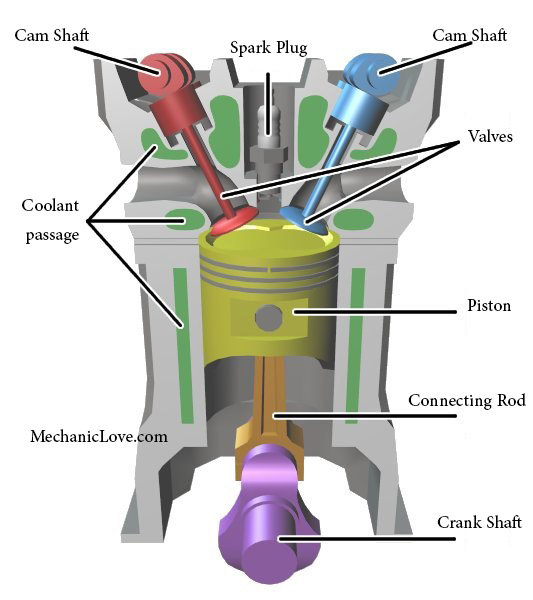
How a four-stroke internal combustion engine works:
A four-stroke internal combustion engine operates on a cycle consisting of four main stages: intake, compression, combustion, and exhaust. Today we will provide a brief explanation of each of these steps:
- Intake: In this stroke, air is drawn into the cylinder by the suction movement arising from the downward movement of the piston.
- Compression: After air is drawn in, it is compressed in the cylinder due to the rising movement of the piston. The air is compressed and its temperature increases, making it ready for combustion.
- Combustion: In this stroke, the air-fuel mixture is ignited by a spark from the spark plug. The mixture is burned, generating heat and pressure that pushes the piston down.
- Exhaust: In this stroke, the exhaust valve opens and the gases resulting from combustion exit. The piston moves upward to prepare for the next stroke.
Petrol engines work on Otto cycle and diesel engines work on diesel cycle – See the thermodynamic cycles
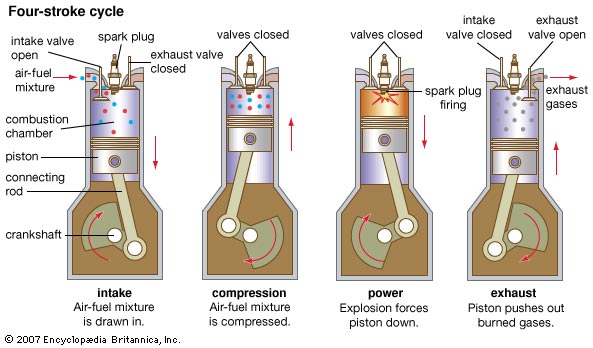
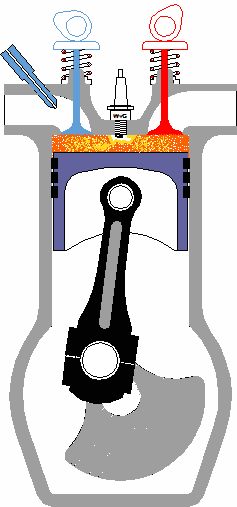
Developments in the four-stroke internal combustion engine:
Over time, the four-stroke internal combustion engine has seen many developments and improvements. These advances include increased combustion efficiency, reduced exhaust emissions, and increased performance and power. Some developments include:
- Direct injection: Using direct injection techniques to increase fuel efficiency and reduce exhaust emissions.
- Turbocharger: Adding a turbocharger to increase the air pressure entering the cylinder and thus increase performance.
- Advanced fuel system: Improving the fuel system and using modern technologies to ensure the use of the least amount of fuel and reduce carbon emissions.
- Cylinder Shutdown System: Allows some cylinders to be shut down when they are not required to provide lower fuel consumption at low speeds.
- Hybrid and electric: Developing hybrid and electric models based on four-stroke internal combustion engines with an electricity system to increase efficiency and reduce pollution.
- Electronic control: Using electronic control systems to improve engine performance and increase its efficiency.

In conclusion, the four-stroke internal combustion engine is considered one of the most important innovations of the twentieth century and still plays a decisive role in transportation, industry, agriculture and many other fields. With modern technologies and continuous innovations, additional developments in this field can be expected in the future.
